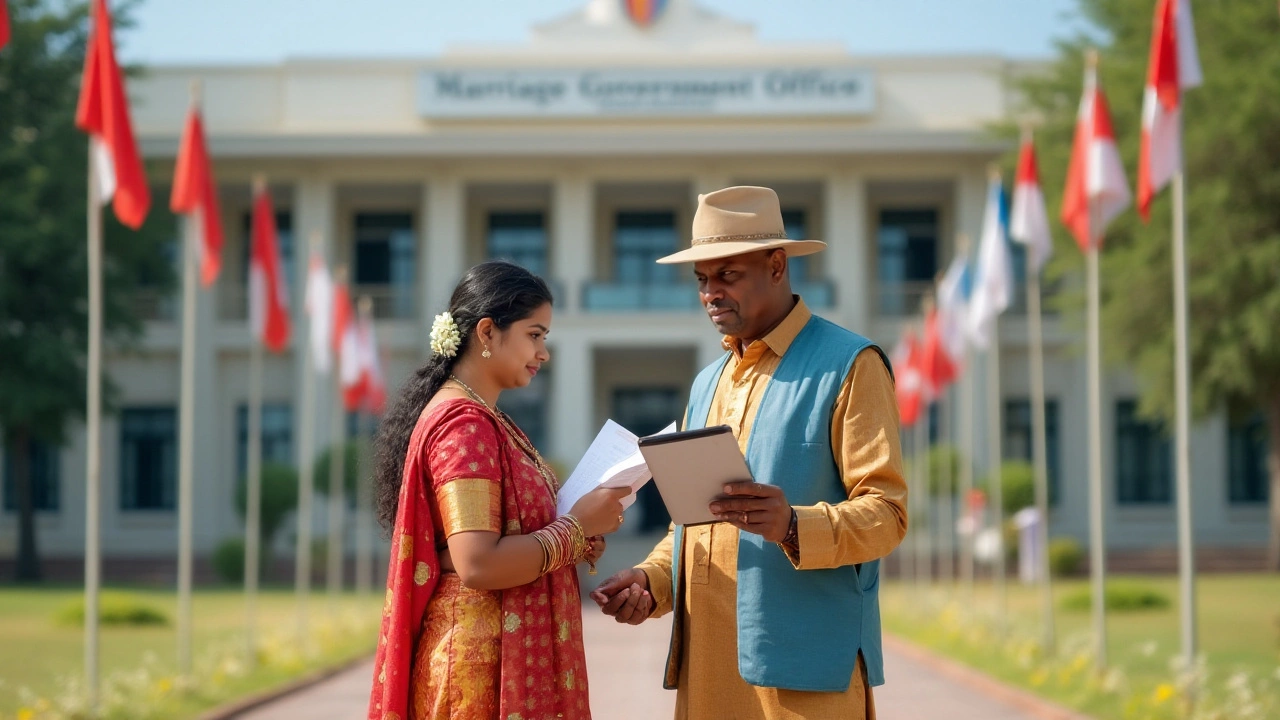Marriage Abroad Registration: What You Need to Know
If you’re an Indian getting married outside India, the biggest question is usually how to make that marriage legally recognized back home. The short answer: you must register your foreign marriage with the Indian consulate or embassy, then get a Certificate of Registration (CR) that you can use for passport updates, visa applications, and property paperwork.
The process isn’t as scary as it sounds. Most Indian missions follow a similar checklist: a completed registration form, your original marriage certificate from the foreign country, valid passports, and proof that the foreign marriage is genuine (like photos, wedding invitations, or a joint bank account). Some missions also ask for a no‑objection certificate from the local registrar where you tied the knot.
Step‑by‑Step: From Wedding Day to Indian Registration
1. Gather your foreign marriage certificate. Make sure it’s an official document, not just a wedding announcement. If the certificate is not in English, you’ll need a certified translation.
2. Fill out the registration form. You can download it from the website of the Indian embassy or consulate where you reside. The form asks for basic details like names, dates, and places of birth.
3. Book an appointment. Many missions now use online booking systems. Choose a slot that gives you enough time before you need the CR for any upcoming paperwork.
4. Bring the required documents. Pack passports, original marriage certificate, translation (if needed), photographs, and any additional proof the embassy asks for.
5. Pay the registration fee. Fees vary by country but are usually modest. Keep the receipt – you’ll need it when you collect the CR.
6. Collect the Certificate of Registration. After a few days (or weeks for some jurisdictions), you’ll receive the CR. This is your proof that India recognizes your overseas marriage.
Common Questions and Quick Tips
Do I need a local marriage certificate? Yes. India won’t accept just a wedding photo. The foreign civil authority must have issued a legal marriage certificate.
What if my marriage is under a religious law? Some missions accept a “Saptapadi” or similar religious record, but it’s safer to have a civil certificate as well.
Can I register after returning to India? You can, but it’s easier to do it while you’re still abroad. If you miss the window, you’ll need to provide additional proof that the marriage happened abroad.
How long does the CR stay valid? The CR itself doesn’t expire, but you’ll need it when applying for a new passport or converting a visa, so keep it safe.
Quick tip: take a digital copy of every document before you head to the embassy. If anything gets lost, you’ll have a backup ready to upload.
Once you have the CR, you can update your passport, apply for a spouse visa, or even add your partner’s name to bank accounts. The registration also protects you if you ever need to prove the marriage for legal matters like inheritance or child custody.
Bottom line: registering a marriage abroad is a handful of paperwork, not a life‑changing ordeal. Follow the checklist, book your appointment early, and you’ll have the Indian Certificate of Registration in no time.

Registering a Foreign Marriage in India: What You Need to Know
When marrying abroad, Indian citizens often wonder if they need to register their marriage in India. Understanding whether your foreign marriage holds legal recognition under Indian law is crucial. This article delves into the essentials of registering an overseas marriage in India, highlights the requirements, and discusses potential legal and cultural implications. For Indians living overseas or NRIs, this guidance helps clarify common concerns about legal obligations and recognition of marriages performed in different countries.